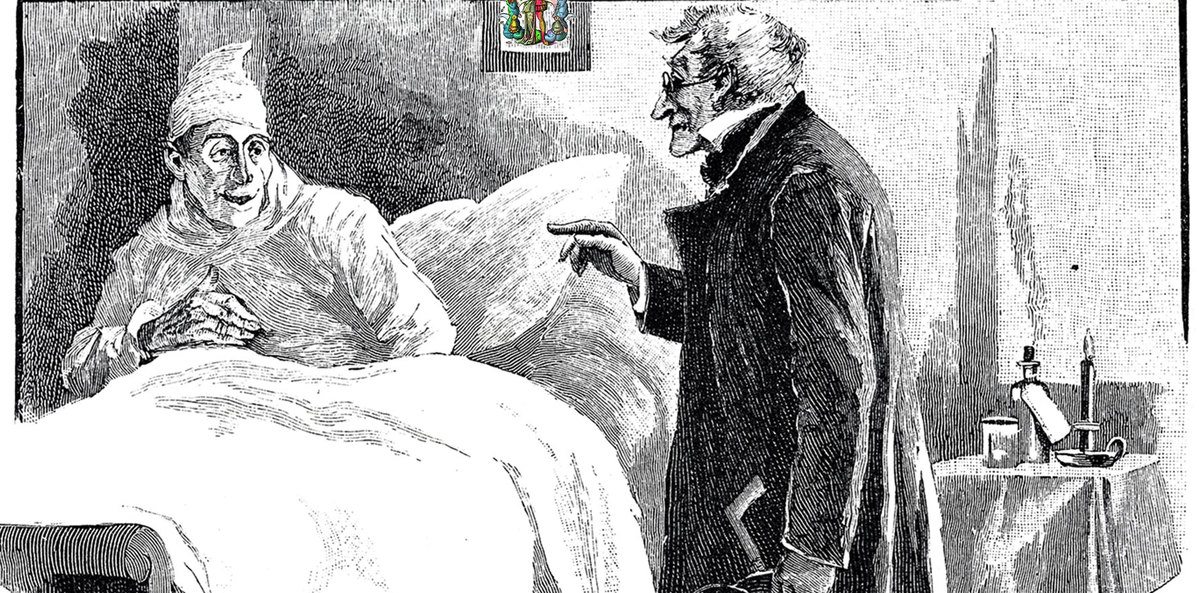Better late than never.
Discharge summaries don’t always arrive promptly, as any GP will tell you, but two centuries is a longer wait than usual.
“I was sorting through my mail,” Professor Candid told The Medical Republic, “leafing through a pile of hospital discharge letters which were all four or five months out of date, when I came across one written in 1794.”
We reproduce it in full, with apologies.
Dear Dr Butterworth,
Good sir, I trust you are well and none the worse for the dreaded pox.
Three morns ago your patient, a Mr Hatherton, of russet complexion and farmer by trade, consulted my rooms in great distress.
Lying in most extraordinary anguish, roaring and crying, his case was deemed typical of the dreaded stone and I got to work on the wretched fellow.
Miss Parlance held aloft the candle while I inserted my itinerarium. I made a swift incision about three inches long and a finger’s breadth from the line running between scrotum and anus into the very neck of the bladder.
The patient’s face was sponged and despite liberal brandy he did let out a mighty shreak. The stone was sought and grasped with pincers and on seeing its bloody delivery Miss Parlance, reduced to moonlit midwife, did become ghastly pale, her complexion as wan as a consumptive with cholera.
Once the stone was out, the wound was left open and a plaster of egg yolk, rose vinegar and anointing oils was applied.
I visited Mr Hatherton at home and found that his stone was in a jar on proud display on the mantlepiece in his crofter’s lodgings. It produced a most foetid odour but he was most proud of it and would take it out to show anyone curious enough to request closer inspection.
I return Mr Hatherton to your excellent care and trust that you will review the progress of the wound.
As you know, Mr Hatherton is an idiot, but his wife, despite her smell of sour milk, lazy eye and plenitude of lice, is able to follow simple instruction.
Your faithful servant,
Mr Arthur Bowes Smyth
In the year of our lord 1794
“I wrote back to the hospital,” Professor Candid told TMR, “and thanked them for their useful and timely discharge letter.
“Even if the patient’s long dead, those juniors are rushed off their feet and we just have to accept that we’re a low priority.”


